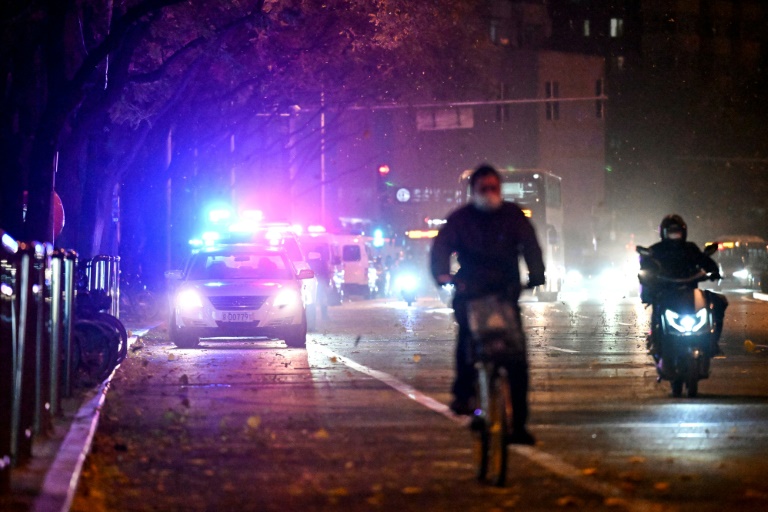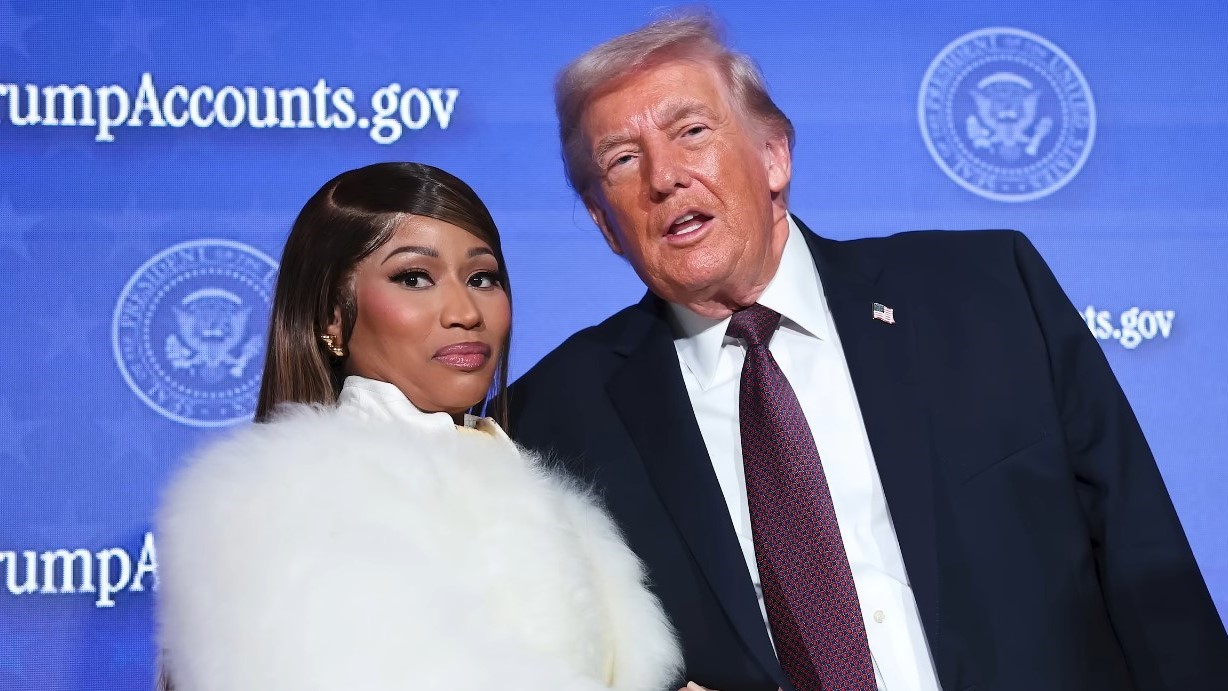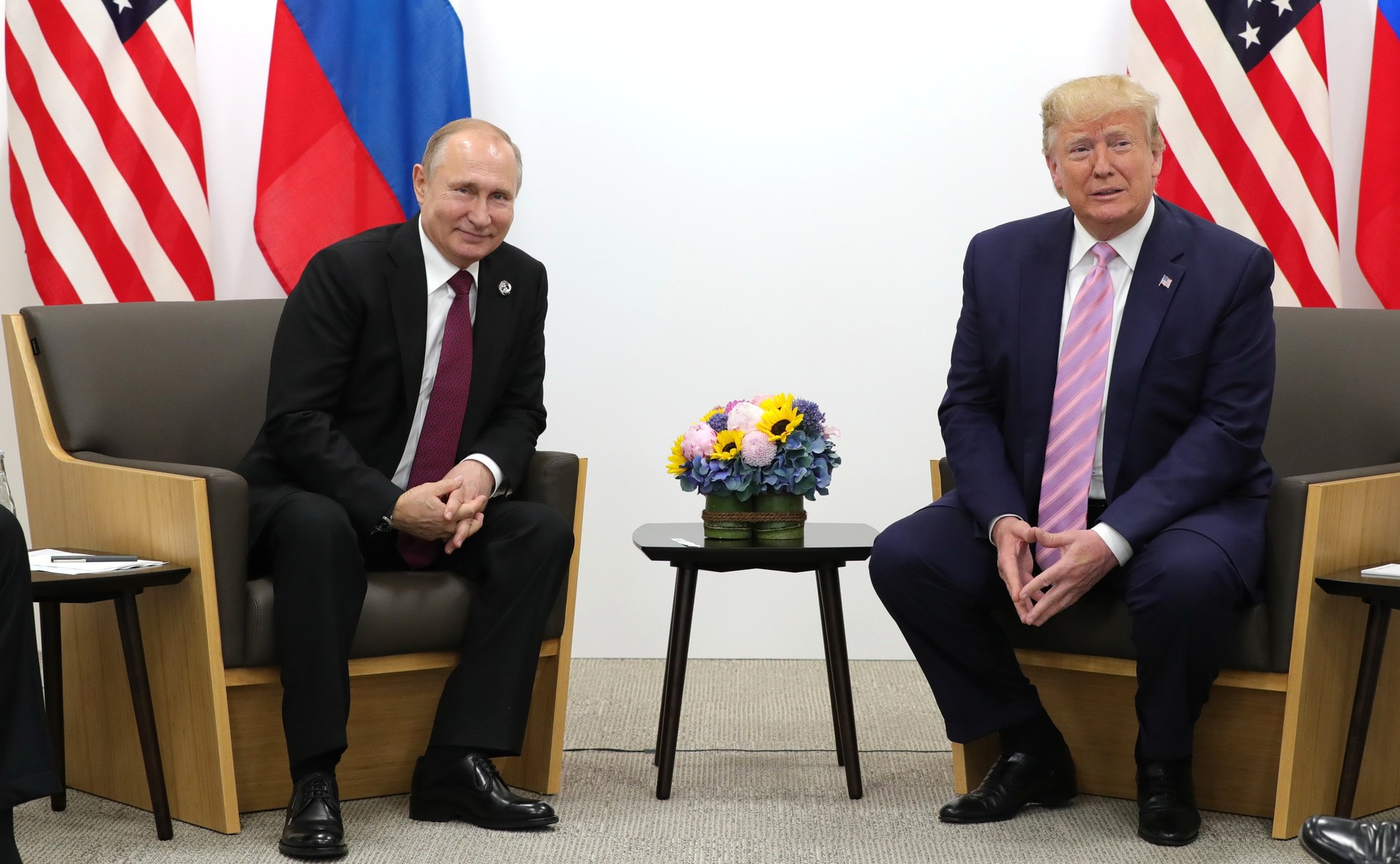With police cars, foot patrols, a network of surveillance cameras, and aided by the icy wind, Beijing authorities appeared Monday to have deterred fresh anti-lockdown gatherings — at least for the time being.
Sunday night saw hundreds of people, mainly in their 20s and 30s, rally in a rare protest in a well-to-do tree-lined area on a bank of the river Liangma.
Many held blank white sheets of paper in a symbolic protest against censorship and chanted slogans opposing the strict health restrictions that have prevented them from moving freely for almost three years.
No such rally appeared to have taken place the following night, an AFP journalist saw, though many passersby expressed defiant support for the protests that have rocked China over the last few days.
“I followed this on social media and I wanted to come and see. Finally, there is a movement against this health policy,” a 40-year-old man who asked to remain anonymous told AFP, keeping his voice low.
“Today young people are worried. The price of housing has become almost inaccessible, they do not know if they will find a job,” he said.
“This health policy is like putting a lid on China. We’re becoming the laughingstock of the world, aren’t we?”
Police patrolled nearby on both banks of the river in small groups every five minutes or so, standing out in their navy blue uniforms. Others were posted to adjacent streets.
Twenty cars and police vans were parked nearby, some equipped with cameras, making any gathering almost impossible.
“I am touched by what these young people did yesterday. They are defending their rights, I support them,” explained a 30-year-old enjoying the river, despite the gusts and frigid temperatures.
“I think they were inspired by the October event,” she said, referring to a rare protest just days ahead of a key Communist Party meeting when banners criticising lockdowns and Xi Jinping were draped over a bridge in Beijing.
She, too, has reason to be upset.
“My passport expired two years ago and the authorities refuse to renew it because of health restrictions. We can’t even go abroad,” she told AFP.
Chinese authorities have paused issuing new passports to their nationals, with a few exceptions such as seeing close family, continuing their studies or being sent by their employer abroad.
A little further on, a young woman who came to jog said she had followed the events of the previous day on social media.
“It’s good. It sent a signal that people were tired of overly tough restrictions,” she said.
“I think the government has heard the message and is going to relax the policy to give them and everyone else a way out.”
This is also what the 40-year-old hoped, he told AFP.
“We see our leaders going abroad and not wearing a mask. So why do we still have to wear one here? It’s incomprehensible!” he said.
Other politically sensitive places in Beijing, such as Tiananmen Square — the focal point of a major protest in 1989 that was later brutally crushed — were deserted on Monday.
On the outskirts of the area, police imposed identity checks — even on passing cyclists, a rare sign of heightened security around an already heavily-securitised area.
Another demonstration planned for the evening in the capital near the bridge where the banner was displayed in October, also reportedly did not take place again due to a strong police presence.







